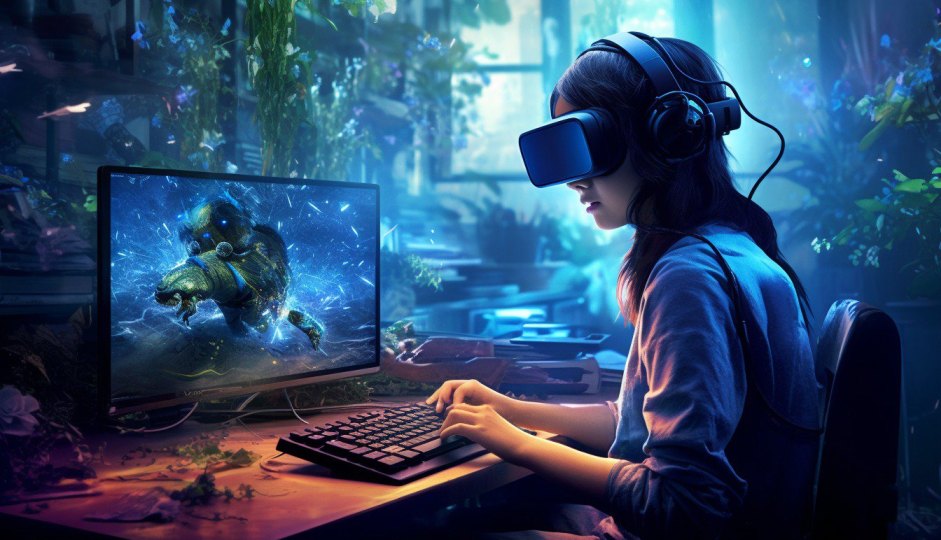The Role of Artificial Intelligence in the Development of Online Games in the Next 5 Years

The world of online gaming is undergoing a transformative evolution, thanks to the incredible advancements in artificial intelligence (AI). As we look ahead to the next five years, the role of AI in game development is set to become even more pronounced and influential. This technological synergy isn’t limited to just gaming; it’s also extending its reach into other exciting domains, including the world of online casinos (オンラインカジノ for Japanese readers).
In this article, we’ll delve into the various aspects of how AI is shaping the future of online games, covering everything from player experiences to game design and beyond. Moreover, we’ll explore how these AI-driven innovations are impacting the dynamic realm of online casinos.
AI-Powered Game Design
One of the most intriguing prospects in the gaming industry’s future is the integration of artificial intelligence into the very core of game design. AI is set to become the creative partner that game developers have always dreamt of. With advanced algorithms, AI can analyze vast datasets of player behavior, preferences, and choices. This analysis empowers game designers to craft dynamic and adaptive game worlds that respond in real time to the player’s actions and decisions.
Imagine a gaming experience where the virtual realm evolves as you play, offering unique challenges and surprises tailored to your gaming style. AI-driven game design will lead to experiences that are not only highly engaging but also deeply personal, blurring the lines between the real and virtual worlds.
Enhanced Graphics and Realism
Visual realism in online games is poised to reach new heights in the coming years, thanks to AI’s prowess. The integration of artificial intelligence in rendering technology enables games to achieve graphics that are nothing short of breathtaking. Think of AI as the wizard behind the curtain, meticulously crafting every pixel and texture to create stunningly realistic environments.
As we move forward, AI-driven graphics will make you question whether you’re watching a game or a blockbuster movie. This visual renaissance promises to transport gamers into worlds that are not just immersive but visually indistinguishable from reality.
Seamless Multiplayer Experiences
For multiplayer enthusiasts, AI holds the promise of significantly improving the gaming experience. AI algorithms are being harnessed to optimize matchmaking, ensuring that players are pitted against opponents of similar skill levels. Say goodbye to frustratingly one-sided matches; AI will work tirelessly behind the scenes to create balanced and enjoyable gaming sessions.
Moreover, AI’s real-time analysis will help reduce latency issues, ensuring that your actions in the game world are reflected instantaneously. Cheating will also be on the decline, thanks to AI-powered anti-cheat systems that can identify suspicious behavior with pinpoint accuracy. With AI as the matchmaker and guardian, multiplayer gaming will be more competitive and fair than ever before.
In-Game Virtual Assistants
In the near future, don’t be surprised if your favorite game introduces you to a virtual companion—an AI-driven sidekick that accompanies you on your gaming journey. These in-game virtual assistants are set to be more than just guides; they’ll be your friends within the virtual realm.
Imagine having a witty and knowledgeable AI companion offering strategic advice during a challenging boss battle or engaging in banter as you explore new horizons. These virtual companions will not only enhance the gaming experience but also provide a new dimension to storytelling in games.
In this section, we’ve unveiled the exciting foundation of AI’s role in shaping the future of online gaming. From dynamic game design to breathtaking graphics, seamless multiplayer experiences, and AI-driven virtual companions, the possibilities are boundless. As we progress through the article, we’ll delve deeper into these aspects and their profound impact on the gaming landscape over the next five years.
AI and Player Experiences
Online gaming isn’t just about graphics and design; it’s about the players and their experiences. AI is set to revolutionize how gamers interact with their virtual worlds.
Personalized Gameplay
AI algorithms analyze player behavior and preferences to offer tailored gaming experiences. Whether you prefer challenging quests or relaxing exploration, AI will curate the perfect adventure for you.
Intelligent NPCs
Non-player characters (NPCs) are becoming smarter and more lifelike, thanks to AI. Expect NPCs to engage in realistic conversations, adapt to player choices, and even form unique personalities.
Real-Time Language Translation
AI-powered language translation will break down language barriers in online gaming, allowing players from around the world to communicate effortlessly and collaborate effectively.
The Business Side of Gaming
AI isn’t just enhancing the gaming experience; it’s also transforming the gaming industry itself.
Predictive Analytics for Game Development
AI-driven predictive analytics can forecast player behavior and game performance, helping developers make informed decisions about updates, content, and monetization strategies.
AI-Generated Content
From procedural generation of game levels to automated story creation, AI is reducing development time and costs while increasing the variety and quality of game content.
Monetization and Player Retention
AI is assisting in crafting personalized monetization strategies that benefit both players and developers, ensuring fair and enjoyable in-game purchases.
FAQs
Q: How will AI impact competitive gaming in the next 5 years? A: AI will enhance matchmaking, reduce cheating, and offer real-time analysis, creating a more competitive and fair gaming environment.
Q: Can AI really create content as compelling as human designers? A: AI-generated content is improving rapidly, offering a vast array of possibilities, but human creativity remains essential.
Q: What challenges does AI face in the gaming industry? A: Challenges include data privacy concerns, potential bias in AI algorithms, and the need for robust AI ethics guidelines.
Q: Will AI replace human game designers? A: AI will assist designers but won’t replace them. Human creativity and storytelling will always be invaluable in game development.
Q: How will AI impact the accessibility of online games? A: AI-driven language translation and accessibility features will make online games more inclusive for players worldwide.
Q: What can players expect in terms of AI-driven graphics? A: In the next 5 years, AI will enable games with visuals rivaling those in high-end movies, creating stunningly realistic gaming environments.
Conclusion
The role of artificial intelligence in the development of online games over the next 5 years promises to be nothing short of groundbreaking. From enhancing player experiences to transforming game design and industry practices, AI is a driving force in the evolution of gaming. As players and developers alike embrace these advancements, the future of online gaming looks brighter than ever.

